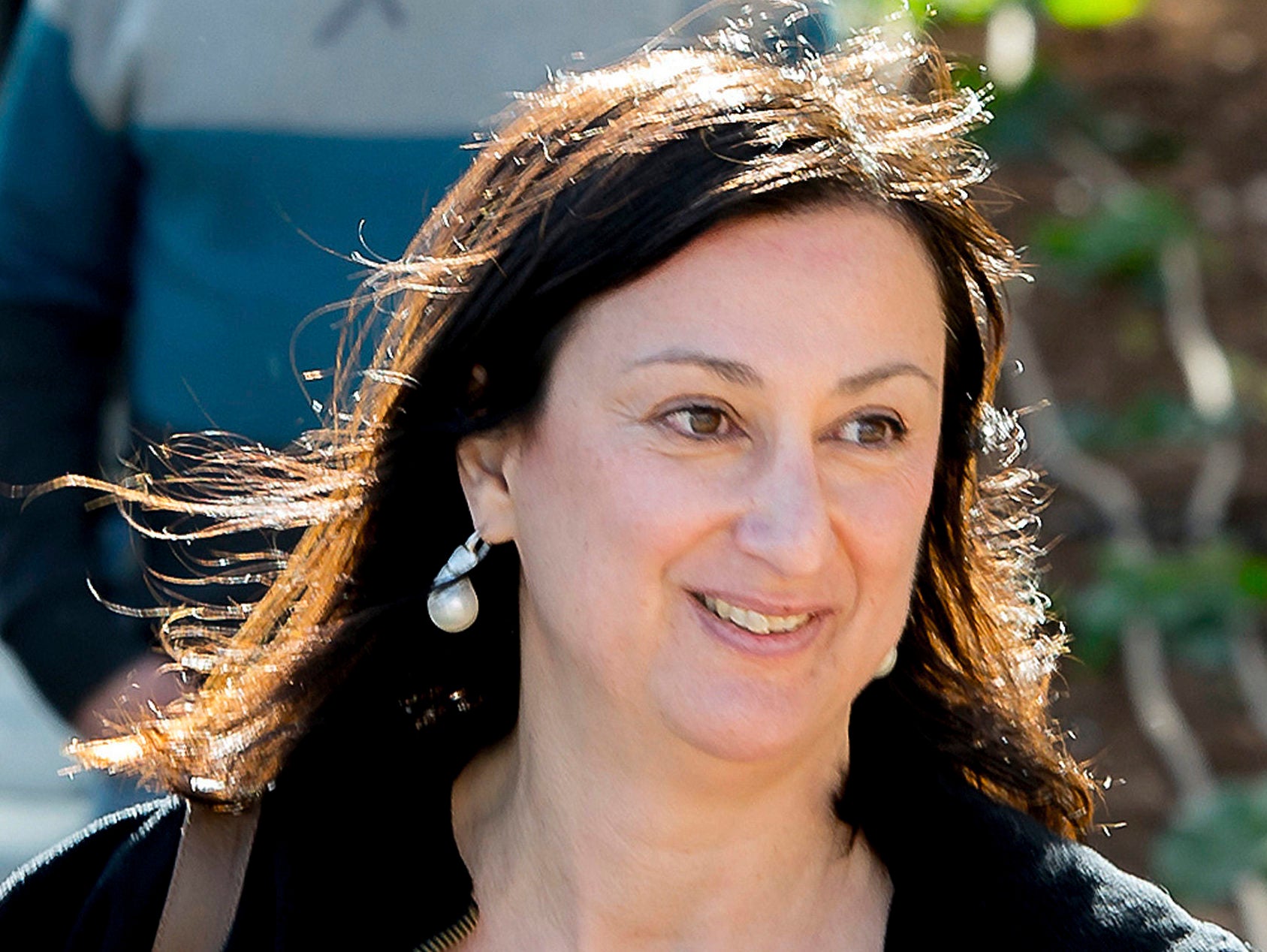
The Council of Europe has warned that the intimidation and harassment of journalists has not improved despite public commitments from its executive decision-making body four years ago to tackle the “alarming and unacceptable” rise in threats.
The human rights organisation has made a series of recommendations to European states, including making reforms to defamation laws, after hearing testimonies from 20 journalists who have suffered violence and intimidation because of their work.
One of the 20 was Maltese journalist Daphne Caruana Galizia (pictured) who was interviewed about her experiences ten days before she was murdered with a car bomb in October 2017.
Caruana Galizia described how she lived with “churning, churning nerves all the time” because of constant intimidation, including an arson attack on her home, calls to her house, “constant propaganda” published about her and 19 defamation cases brought against her.
The Council of Europe’s “A Mission to Inform: Journalists at Risk Speak Out” study, written by media freedom experts William Horsley, a former BBC foreign correspondent and now international director of the Centre for Freedom of the Media at the University of Sheffield, and the University of Malta’s Marilyn Clark, said the 20 journalists shared “striking and insightful” cautionary messages.
“Journalists at risk of violent assaults and legal or judicial harassment require effective safeguards and reforms to ensure the independence of judicial systems, independent oversight of police and security agencies, and genuine respect for the rule of law,” the report said.
“Cultures of impunity which protect the perpetrators of crimes must not be allowed to flourish. The protection of free, independent and diverse media calls for concerted action and far-reaching measures. All branches and levels of state authorities are legally bound by their obligations as state parties to the [European] Convention [on Human Rights].
“Other stakeholders, including employers, journalists’ associations and civil society organisations also have essential parts to play and should be consulted when reviews of domestic laws and practices are carried out.”
In 2016 the Committee of Ministers of the Council of Europe adopted an advisory acknowledging the “alarming and unacceptable” increasing scale of threats and attacks and urging member states to strengthen protections for journalists and eradicate impunity.
But the new report said despite these commitments, “in practice the intimidation and harassment of journalists has not improved”.
The 20 journalists shed light on a “flood of cases” in which elected politicians or other public figures “vilify or demonise” journalists in public statements and online, threatening both media freedom and the journalists’ safety, the report said.
Azerbaijani investigative journalist Khadija Ismayilova said it was politicians “that make our job risky”.
UK video journalist Jason Parkinson said in 2018 that the rise of populist rhetoric “is actually going to start getting quite dangerous for us in the positions that we’re in, with certain elements in the authority already deeming us a problem”.
“It does feel a lot more threatening these days,” he said.
Parkinson said he had been “knocked around or shoved about or hit with a baton” while working numerous times. And of being surveilled, he said it “just kind of confuses you and makes you doubt yourself all the time. And then you start to lose confidence”.
The experts warned that verbal attacks create a climate in which physical violence against journalists is more likely, while demonisation of the media that goes unchallenged by those in authority has an “extremely damaging chilling effect on the work of journalists and on the wider society”.
“Political leaders and state authorities are urged to publicly condemn and deter verbal threats and insults against journalists, and attempts to denigrate or stigmatise them,” they said.
Member states were urged to take better “preventive operational measures” in cases of real and immediate risk to the life or physical security of journalists, including by providing police protection or voluntary evacuation to a safe place.
“Adequate training and independent law-enforcement oversight mechanisms are of fundamental importance,” it said.
In legal terms, the report recommended reform of defamation laws “with strictly proportionate penalties and no enhanced protections for public figures” following concerns they are often used to deter reporting and intimidate journalists.
Greek journalist Kóstas Vaxevánis said defamation laws create an “oppressive situation” for him and his newspaper, with five cases costing around €2,000 filed against him each year.
Caruana Galizia faced more than 40 civil and criminal defamation suits against her reporting, including 19 from a single individual.
The report also called for appropriate laws to ensure the protection of sources, for states to make sure anti-terrorism and national security legislation is not misused against journalists – echoing concerns in the UK over proposed new laws last year – and the adoption of strong legislation on access to information.
The report also urged:
- The “highest standards of legal protection” for journalists and an independent judiciary to protect them;
- Reporting mechanisms in individual countries – similar to the Council of Europe’s own media freedom alerts – to monitor and respond to attacks on journalists and the media;
- Strict protocols to ensure “thorough, prompt, impartial and independent investigations into killings, attacks and ill-treatment of journalists” – the perpetrators of at least 22 murdered journalists in Europe were alleged to have been shielded from justice at the end of 2019;
- Better training so public officials understand the rights of journalists.
Picture: AP Photo/Jon Borg/File
Email pged@pressgazette.co.uk to point out mistakes, provide story tips or send in a letter for publication on our "Letters Page" blog
